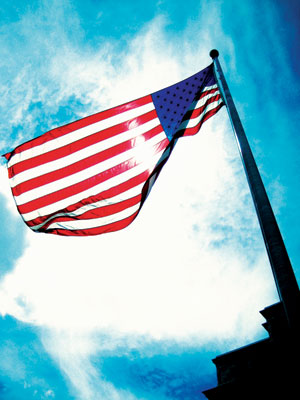All Nonfiction
- Bullying
- Books
- Academic
- Author Interviews
- Celebrity interviews
- College Articles
- College Essays
- Educator of the Year
- Heroes
- Interviews
- Memoir
- Personal Experience
- Sports
- Travel & Culture
All Opinions
- Bullying
- Current Events / Politics
- Discrimination
- Drugs / Alcohol / Smoking
- Entertainment / Celebrities
- Environment
- Love / Relationships
- Movies / Music / TV
- Pop Culture / Trends
- School / College
- Social Issues / Civics
- Spirituality / Religion
- Sports / Hobbies
All Hot Topics
- Bullying
- Community Service
- Environment
- Health
- Letters to the Editor
- Pride & Prejudice
- What Matters
- Back
Summer Guide
- Program Links
- Program Reviews
- Back
College Guide
- College Links
- College Reviews
- College Essays
- College Articles
- Back
What Does it Mean to be an American?
What does it mean to be an American? The historian Philip Gleason put it this way, “To be or to become an American, a person did not have to be any particular national, learning languages, religious, or ethnic background. All he had to do was to commit himself to the political ideology centered on the abstract ideals of liberty, equality, and republicanism. Thus the universalist ideological character of American nationality meant that it was open to anyone who willed to become an American.” To be an American one must act as an American. They must pay taxes, vote in elections, and serve their country whether at home or abroad. They must be accepting of all religions, ethnicities and personal morals.
First, an American has the right to speak their mind, which is freedom of speech. This freedom helps us serve our country, an American stands up for what is right and just. As Ghandi said "A "no" uttered from the deepest conviction is better and greater then a "yes" uttered to please, or what is worse, to avoid trouble." Expressing your opinion is a big part of being an American. And the next gentlemen to support these facts are Orwell, “peace, freedom, and security. I have a dream that one day this nation will rise up and live out the true meaning of its creed.”
"It also means that we have the opportunity to overcome our challenges by coming together and finding solutions that many people can't do in other countries, but the freedom to come together and worship God, believer with believer and communities with communities, is one great thing to be proud of." Unlike most other nations on Earth, the American nation is not strictly defined in terms of race or ethnicity or ancestry or religion. George Washington may be the Father of Our, but there have been in the past, and are today, many millions of patriotic, hardworking, upstanding Americans who are not Caucasian, or Christian, or of Western European ancestry. Yet they are undeniably as American as you or I. What distinguishes the United States from other nations, and what unites the disparate peoples, who make up our country, are our unique political, economic, and social values, beliefs, and institutions. Not race, or religion, or ancestry. To take the motto of the Great Seal of the United States, E pluribus unum– “From many, one”–in this context suggests not that many should be melted down into one, as in Israel Zangwill’s image of the melting pot, but that, as the Great Seal’s sheaf of arrows suggests, there should be a coexistence of many- in-one under a united citizenship based on shared ideals.
Of course, the story is not so simple, as Gleason himself went on to note. America’s history of racial and ethnic exclusions has undercut the universal stance; for being an American has also meant sharing a national culture, one largely diverse in racial, ethnic, and religious terms. Americans can have more than one language
Second, whether described as a "proposition nation" or a "creedal nation" or simply just "an idea," the United States of America is defined by our way of life. This way of life is rooted in the ideals proclaimed in the Declaration of Independence; in the system of personal liberty and limited government established by the Constitution; in our traditions of self-reliance, personal responsibility, and entrepreneurism; in our emphasis on private property, freedom of contract, and merit-based achievement; in our respect for the rule of law; and in our commitment to affording equal justice to all. But democratic activity involves not just voting, but also deliberation, then people must make an effort to listen to and understand one another. Moreover, they must be willing to moderate their claims in the hope of ending common ground on which to base political decisions. Individuals pursuing their own interests cannot realize such democratic activity; it requires some concern for the common good. A sense of solidarity can help foster mutual sympathy and respect, which in turn support citizens’ orientation toward the common good. Perhaps above all, it is marked by our abiding belief that, as Americans, we have been called to a higher duty in human history. We are the "city upon a hill." We are "the last, best hope of earth."
In conclusion, the definition of an American is of or relating to the United States of American or its people, language, or culture. However, an American is really someone who cherishes their freedom of speech, freedom to fight for their country, and freedom from slavery. An American has the right to speak their mind, which is freedom of speech. An American is someone who values their freedom of speech, freedom to fight for their country, and freedom from slavery. Americans came to this country for a chance to have more liberties than

Similar Articles
JOIN THE DISCUSSION
This article has 3 comments.
